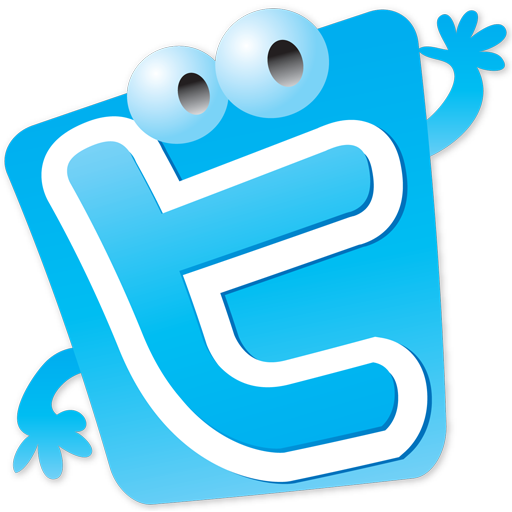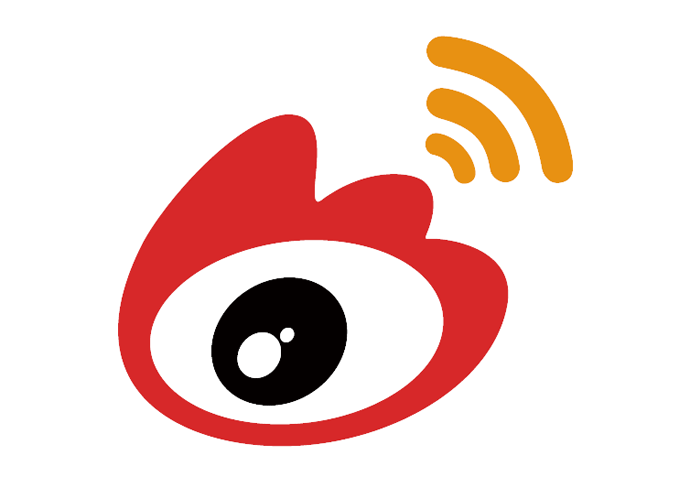The first three months of pregnancy is the most crucial stage in your baby's development as all organs are forming. Throughout
your pregnancy, but especially during the first three months, be very
careful about using alcohol, drugs and medication. The following
information outlines substances that require special precautions during
pregnancy. Instructions are also given on how to keep track of fetal
movements, an important sign of your baby's health.
Precautions
The danger of alcohol use during pregnancy is that it may cause Fetal Alcohol Syndrome (FAS). Babies born with FAS may:
Alcohol is an ingredient in many over-the-counter medications. For example, some cough medicines are 25 percent alcohol. Ask your health care provider if you should use such products during pregnancy. Always read the label before taking any medication.
Precautions
Because there is no known safe level of alcohol taken during pregnancy, the National Institute of Alcohol Abuse and Alcoholism and the March of Dimes caution pregnant women to follow the safest course by:
Precautions
Precautions
Whenever possible, try to minimize your use of:
Precautions
Precautions
Precautions
Precautions
If you (mother) are Rh negative and your baby’s blood is Rh positive there is an Rh incompatibility. Because some of the baby’s red blood cells leak into your system, your body will produce antibodies to fight the Rh factor as if it were a harmful substance. These antibodies will remain in your body and may affect your next baby. If you are Rh negative, you will be given an injection of Rhogam at about 28 weeks of pregnancy, and within 72 hours after a birth, miscarriage, abortion or amniocentesis. The Rhogam will prevent your body from making these harmful antibodies. If your baby is Rh negative, you will not need Rhogam after delivery. Talk with your health care provider for more information.
Preeclampsia
Preeclampsia is also called Pregnancy Induced Hypertension (PIH) or toxemia. The cause of Preeclampsia is unknown. It occurs in about 5% of pregnancies and is most common in:
Gestational Diabetes
Gestational diabetes only occurs during pregnancy. The changes in your body during pregnancy can cause your blood sugar (glucose) levels to be high, which can cause problems for you and your baby. You will receive specific education on how to care for yourself if you develop gestational diabetes. It is very important to follow the diet, exercise and blood sugar monitoring plans given to you.
Gestational diabetes is most likely to develop if you:
- Fish and seafood
- Alcohol
- Caffeine
- Cigarettes
- Food additives
- Food handling concerns
- Medications and herbs
- Saunas and hot tubs
- Toxoplasmosis
- Fetal solvent syndrome – risk for major birth defects
- Video Display Terminals (VDTs)
- Other precautions and concerns
Fish and seafood
Fish and seafood are excellent low-fat sources of many nutrients and an important part of a healthy diet. However, there is a concern about eating fish and seafood during pregnancy, since some types may contain high levels of mercury. To be safe, choose wisely among types of fish.Precautions
- Eat no more than 12 ounces of cooked fish a week.
- Do not eat shark, swordfish, king mackerel or tilefish.
- Limit albacore (white) tuna (even canned) to once a week.
- If you eat fish caught by family and friends from local waters, check local advisories about the safety of fish.
- Fish sticks and fast food sandwiches are commonly made from fish low in mercury.
Alcohol
No one knows how much alcohol is safe to drink during pregnancy.The danger of alcohol use during pregnancy is that it may cause Fetal Alcohol Syndrome (FAS). Babies born with FAS may:
- Grow more slowly
- Have learning problems
- Have abnormal facial features
Alcohol is an ingredient in many over-the-counter medications. For example, some cough medicines are 25 percent alcohol. Ask your health care provider if you should use such products during pregnancy. Always read the label before taking any medication.
Precautions
Because there is no known safe level of alcohol taken during pregnancy, the National Institute of Alcohol Abuse and Alcoholism and the March of Dimes caution pregnant women to follow the safest course by:
- Completely avoiding alcoholic beverages while pregnant.
- Discuss your concerns about alcohol and pregnancy with your healthcare provider.
Caffeine
Caffeine is a stimulant that affects people differently. Caffeine can cause nervousness, irritability, anxiety, irregular heartbeats and problems sleeping. How caffeine affects an unborn baby is still under investigation. Some scientists believe caffeine can cause premature or smaller than normal babies or possible birth defects.Precautions
- Cut down or eliminate food and drinks that contain caffeine such as coffee, tea, colas and other soft drinks, cocoa and chocolate.
- Caffeine is an ingredient in many non-prescription medicines such as headache, cold, allergy, and pills made to combat drowsiness.
- If you have been consuming caffeine in large quantities, gradually decrease your intake. Stopping all at once can cause severe headaches, nausea, fatigue and other symptoms. Check with your health care provider for more information.
Cigarettes
Cigarette smoking may lead to serious health problems. Women who smoke during pregnancy usually give birth to babies that weigh less than those of women who don’t smoke. Low birth weight babies are more likely to have health problems, such as:- Infections
- Trouble keeping warm
- Feeding problems
- Breathing problems
- Sudden Infant Death Syndrome (SIDS)
Precautions
- Stop smoking or cut down your smoking when pregnant. There are many community programs available to assist you. Call the American Cancer Society for information on Smoke-Stopper Programs in your area. Call 1-800-NOBUTTS(800-662-8887).
- Avoid smokers and smoking areas whenever possible.
Food additives
PrecautionsWhenever possible, try to minimize your use of:
- Processed food items, such as hot dogs.
- Foods containing sodium nitrate, such as cured meats like ham or bacon. These substances may be carcinogenic (cancer-causing).
Food handling concerns
Eating raw fish, meats or poultry may increase your risk of infection or parasitic disease. Cooking food destroys bacteria and parasites. Milk that is not pasteurized may also cause illness.Precautions
- Avoid eating raw fish, such as sushi and ceviche, meats or eggs.
- Only drink pasturized milk.
- Cook your fish, meat, poultry and eggs thoroughly.
- Always wash cutting boards after slicing any raw fish, meats, or poultry.
- Run plastic cutting boards through the dishwasher. Microwave wooden cutting boards for five minutes.
Medications and herbs
Some medications and herbs may harm your baby. Before taking any medication or medicinal herbs during your pregnancy, ask your health care provider these questions:- What is this medicine/herb?
- What does it treat?
- What are the side effects my baby or I may experience?
- What is the smallest effective dose?
- How long will I need to take this medication?
- Be cautious about using medications that contain multiple ingredients. They are more likely to contain extra substances that may harm your baby.
Saunas and hot tubs
Avoid saunas and hot tubs that maintain a temperature greater than body temperature. They can potentially cause overheating and affect the development of your baby.Precautions
- Avoid possible overheating.
- Check with your health care provider for recommendations.
Toxoplasmosis
Toxoplasmosis is a condition caused by a parasite found in cat feces, plant soil, and raw or undercooked meat. The parasite can cause brain damage in a developing baby if the mother becomes infected during pregnancy.Precautions
- Avoid contact with cat feces. Have someone else change the litter box.
- Wash dirt from fresh produce before eating.
- Use gloves when you garden.
- Cook all meat to at least medium, preferably well done.
Fetal solvent syndrome – risk for major birth defects
Exposure to chemicals may cause birth defects. Talk to your health care provider if you are concerned about exposure to chemicals in your environment.Video Display Terminals (VDTs)
At this time, there are no solid research findings regarding the effects of computer monitors or Video Display Terminals (VDTs) on a developing baby.Precautions
- Reduce your exposure to VDTs whenever possible.
- Be sure to take frequent stretch breaks and look away from the computer screen whenever possible.
Other precautions and concerns
Rh Negative Mothers and RhogamIf you (mother) are Rh negative and your baby’s blood is Rh positive there is an Rh incompatibility. Because some of the baby’s red blood cells leak into your system, your body will produce antibodies to fight the Rh factor as if it were a harmful substance. These antibodies will remain in your body and may affect your next baby. If you are Rh negative, you will be given an injection of Rhogam at about 28 weeks of pregnancy, and within 72 hours after a birth, miscarriage, abortion or amniocentesis. The Rhogam will prevent your body from making these harmful antibodies. If your baby is Rh negative, you will not need Rhogam after delivery. Talk with your health care provider for more information.
Preeclampsia
Preeclampsia is also called Pregnancy Induced Hypertension (PIH) or toxemia. The cause of Preeclampsia is unknown. It occurs in about 5% of pregnancies and is most common in:
- First pregnancies
- Twin or other multiple pregnancies
- Women with high blood pressure before 20 weeks of pregnancy
- Teenage pregnancies
- Women with diabetes
- Women who have had preeclampsia during a previous pregnancy
Gestational Diabetes
Gestational diabetes only occurs during pregnancy. The changes in your body during pregnancy can cause your blood sugar (glucose) levels to be high, which can cause problems for you and your baby. You will receive specific education on how to care for yourself if you develop gestational diabetes. It is very important to follow the diet, exercise and blood sugar monitoring plans given to you.
Gestational diabetes is most likely to develop if you:
- Are overweight
- Have a family history of diabetes
- Gave birth to a baby weighing 9 pounds or more
- Had a baby who died before birth
- Had gestational diabetes in the past
- Are of Latin, American Indian, African, Asian or Pacific Islander descent
- Baby
- Big baby
- Premature birth
- Jaundice
- Low blood sugar
- Stillborn (although this is rare)
- Mother
- High blood pressure
- Bladder or kidney infection
- Shortness of breath
- Harder birth and longer recovery time
- Increased chance of cesarean delivery




沒有留言:
張貼留言